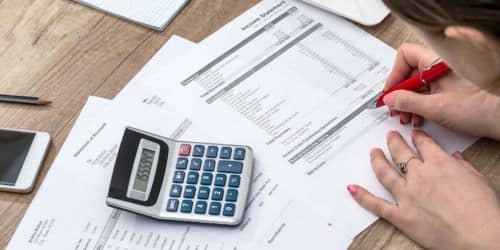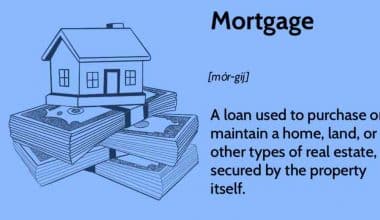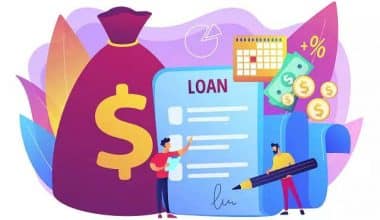Welcome to the world of financial opportunities! Whether you are searching for the perfect apartment or planning to secure a loan, providing proof of income documents is a crucial step in the process. This becomes especially important for self-employed individuals, who often face unique challenges when it comes to verifying their income. When applying for an apartment, landlords and property managers require proof of income documents to ensure that you have a stable financial standing. Similarly, financial institutions require these documents when you apply for a loan, as they want to assess your ability to repay it. So, it’s essential to familiarize yourself with the necessary proof of income documents for self-employed individuals, as they can significantly impact your chances of success. In this article, we will provide valuable advice on proof of income documents for Self Employed, apartment, and loan applicants.
What is Proof of Income Documents
Proof of income documents is official records that validate your financial stability and earning capacity. These documents serve as evidence of your income when applying for various financial transactions. They are also required for renting apartments, applying for loans, or purchasing a home. Proof of income documents provides assurance to landlords, lenders, or financial institutions about your financial standing. They can also include pay stubs, tax returns, bank statements, employment letters, or investment income statements. These documents also help verify your ability to meet financial obligations and assess your creditworthiness.
The specific proof of income documents required may vary depending on the purpose and institution involved. It’s essential to gather and provide accurate and up-to-date proof of income documents to ensure a successful application. Checking with the specific party or institution can also help clarify which documents are necessary for your situation. By presenting these documents, you can also increase your chances of securing the desired apartment or loan.
Proof of Income Documents for Self Employed
Proof of income documents for self-employed individuals is essential for demonstrating financial stability and income reliability. These documents play a vital role when applying for apartments or seeking loans. They provide evidence of your earning capacity and also, help establish your credibility as a self-employed individual. Examples of such documents include tax returns, profit and loss statements, and bank statements. By submitting these documents, you can also showcase your ability to generate consistent income and manage finances.
It’s crucial to ensure that these documents are accurate, up-to-date, and properly organized. Verifying the specific requirements with landlords or lenders can also help to gather the appropriate proof of income documents. Providing comprehensive and reliable proof of income can, however, increase your chances of securing the desired apartment or loan. Take the time to prepare these documents thoroughly, as they play a significant role in the application process.
Proof of Income Documents for the Apartment
When applying for an apartment, providing proof of income documents is crucial to demonstrating financial stability. These documents serve as evidence of your ability to meet rent obligations and ensure a smooth tenancy. Also, make sure to gather the necessary proof of income documents and keep them organized for easy access. Checking with the landlord or property manager regarding specific document requirements is advisable. Providing comprehensive and accurate proof of income can also help establish your reliability as a tenant. Prepare these documents in advance to streamline the apartment application process and secure your desired rental.
Proof of Income Documents for Loan
When applying for a loan, presenting proof of income documents is crucial to demonstrating your ability to repay. These documents provide evidence of your income and financial stability, assuring lenders of your creditworthiness. Examples of such documents include pay stubs, tax returns, and bank statements showing consistent income and savings. By providing these documents, you can also strengthen your loan application and increase your chances of approval. It’s important to gather and organize the required proof of income documents before applying for a loan. Check with the lender to understand their specific document requirements and submission process. Submitting accurate and comprehensive proof of income documents showcases your financial capability to repay the loan. Ensure that these documents are up-to-date and reflect your current financial situation to instill confidence in the lender.
11 Proof of Income Documents Documents for Renters & Home Buyers
When it comes to renting an apartment or buying a home, providing proof of income documents is a standard requirement. These documents serve as a means to demonstrate your financial stability and ability to meet your financial obligations. Whether you are a salaried employee or self-employed, here are 11 common proof of income documents that renters and home buyers may need to provide:
#1. Pay Stubs
Recent pay stubs are one of the most commonly requested documents, showing your income from your employer.
#2. W-2 Forms
These forms summarize your earnings and tax withholdings from the previous year, typically provided by your employer.
#3. Tax Returns
Both personal and business tax returns are often required, especially for self-employed individuals or those with additional sources of income.
#4. Bank Statements
Providing several months’ worth of bank statements demonstrates your financial stability and income flow.
#5. Profit and Loss Statement
For self-employed individuals, this document provides an overview of your business’s income, expenses, and net profit.
#6. Rental Income Statement
If you have rental properties, a statement outlining the rental income and expenses can be requested.
#7. Letter of Employment
A letter from your employer stating your job position, salary, and length of employment can strengthen your application.
#8. Proof of Pension or Retirement Income
If you receive income from a pension or retirement account, documentation confirming these payments is necessary.
If you receive Social Security benefits, providing a statement that outlines the amount and duration of payments is essential.
#10. Dividend or Investment Income Statements
If you earn income from dividends or investments, relevant statements can validate this income source.
#11. Proof of Alimony or Child Support
If you receive regular alimony or child support payments, providing documentation can also demonstrate additional income.
Remember, the specific documents required may also vary depending on the landlord, lender, or jurisdiction. It’s always advisable to check with the respective party to ensure you gather the appropriate proof of income documents for a smooth application process.
What Can Be Used as a Proof of Income?
There are numerous documents that can be utilized to prove your financial situation, such as proof of income. Pay stubs provide a clear record of your earnings and employer deductions. Tax returns detail your earnings, deductions, and tax payments for a certain time period. Bank statements show your transaction history and income deposits over a set period of time.
Your employer’s employment letters can validate your job position, income, and length of employment. Profit and loss statements are useful for self-employed individuals because they indicate the income and expenses of their business.
Rental income statements, if appropriate, show income from rental properties. Social Security benefit statements attest to the regular payment of Social Security benefits. Dividend income statements and investment income statements reveal additional income from investments or dividends. Pension or retirement income statements are documents that demonstrate the income received from pension or retirement accounts. Alimony or child support payments might be used to prove additional income. You can also present solid proof of your income to numerous entities by compiling and submitting these documents.
What Is the Easiest Proof of Income?
Pay stubs are frequently seen as the simplest alternative for giving proof of income. However, they are easily obtained from your company and show a detailed breakdown of your earnings and deductions. They usually include information like your total income, net income, and any taxes or deductions you’ve taken. Pay stubs are commonly considered genuine proof of income because they are official documents supplied by your employer. They provide a simple and dependable overview of your income, making them a viable solution for many people. Having monthly pay stubs on hand might make verifying your income in various financial scenarios easier. So, if you have access to your pay stubs, they can be the simplest and most expedient way to provide proof of income.
Is Bank Statement Proof of Income?
In most circumstances, bank statements alone may not be deemed sufficient proof of income. While bank statements can be useful for learning about your financial transactions and account balances, they do not expressly show your revenue sources or the constancy of your profits. Bank statements, on the other hand, can be used to supplement other forms of proof of income, such as pay stubs, tax returns, or employment letters. You can also provide a more comprehensive picture of your financial condition and strengthen your proof of income by providing bank statements alongside other pertinent income papers.
How Can I Get Proof of Income Without Pay Stubs?
If you don’t have pay stubs, there are alternative ways to obtain proof of income. Here are some options:
#1. Employment Verification Letter
Request a letter from your employer stating your job position, salary, and length of employment. This letter can also serve as proof of your income.
#2. Tax Returns
Provide copies of your personal tax returns, including all relevant schedules and attachments. Tax returns show your reported income and can also be used to establish proof of income.
#3. Bank Statements
Submit several months’ worth of bank statements that show consistent income deposits. This can also help demonstrate your earning capacity and financial stability.
#4. Invoices or Contracts
If you are self-employed or work as a freelancer, providing copies of invoices or contracts for completed projects can also serve as evidence of income.
#5. Profit and Loss Statements
For self-employed individuals, preparing profit and loss statements can also help showcase your business’s income and expenses, acting as proof of income.
#6. Rental Income Documentation
If you earn income from rental properties, provide copies of lease agreements, rental income statements, or bank statements showing rental deposits.
If you receive Social Security benefits, obtain a statement that outlines the amount and duration of payments as proof of income.
Remember, it’s essential to check with the specific institution or party requiring proof of income to ensure that the alternative documents you provide are acceptable to them. Each organization may have different requirements or preferences, so it’s best to clarify beforehand.
How Do You Prove Income if Paid Under the Table?
Proving income when paid under the table, or receiving cash payments without official documentation, can be challenging. However, there are still some strategies you can consider:
- Bank Deposits: If you deposit your cash earnings into a bank account, you can use bank statements to show regular deposits, although they won’t specify the income source.
- Personal Records: Keep meticulous records of your earnings, including dates, amounts, and details of the work performed. While not official, these records can help support your claim of income.
- Affidavits or Self-Declaration: Draft a sworn statement or self-declaration explaining your income situation, detailing the work you do, and providing an estimate of your earnings.
- Reference Letters: Request reference letters from clients or individuals who can vouch for the work you have done and the income you have earned.
- Third-Party Verification: If possible, try to obtain third-party documentation that can verify your work history or income, such as invoices or contracts from clients.
- Supporting Documents: Gather any additional documentation that can indirectly support your income claims, such as receipts for business-related expenses or evidence of purchases made with the cash earnings.
It’s important to note that proving income when paid under the table may be more challenging and may not be accepted by all institutions or individuals. It’s advisable to consult with professionals, such as accountants or legal advisors, who can provide specific guidance based on your situation and local regulations.
Can I Make My Own Proof of Income?
While it is technically possible to create your own proof of income, it is generally not advisable. Self-created documents may be viewed as less credible and could lead to legal or financial consequences. Using authentic and verifiable proof of income documents is crucial for building trust and credibility. Creating false or misleading proof of income documents can also result in severe penalties and damage your reputation.
It is always recommended to provide genuine, official documents to demonstrate your income accurately and honestly. Relying on fabricated proof of income may jeopardize your chances of obtaining loans, apartments, or other financial opportunities. If you have concerns about providing proof of income, seek guidance from professionals who can assist you legally and ethically.
How Do I Create a Pay Stub for Self-Employed?
Creating a pay stub for self-employed individuals requires careful attention to accuracy and professionalism. Here’s a general guideline to help you create a pay stub:
#1. Choose a Pay Stub Template
Look for online pay stub templates specifically designed for self-employed individuals. Many websites offer customizable templates that you can use as a starting point.
#2. Personal Information
Include your name, business name (if applicable), address, and contact information at the top of the pay stub.
#3. Earnings Section
Create a section to outline the income earned for the pay period. Specify the date range and itemize the different sources of income, such as project names or client names, along with the corresponding amounts.
#4. Deductions Section
Deduct any business expenses or taxes that are applicable. Common deductions include self-employment taxes, business-related expenses, or any other applicable deduction.
#5. Net Pay Calculation
Calculate the net pay by subtracting the total deductions from the total earnings.
#6. Additional Information
Include any other relevant information, such as the pay period frequency (weekly, bi-weekly, monthly), payment method, or any additional notes.
#7. Company Logo (Optional)
If you have a logo or branding for your business, you may consider adding it to the pay stub for a professional touch.
#8. Review and Print
Double-check all the information on the pay stub for accuracy. Once satisfied, print the pay stub or save it as a digital file for future reference.
It’s important to note that while creating a pay stub can be useful for record-keeping purposes, it may not hold the same weight as official pay stubs issued by employers. Lenders, landlords, or other parties may require additional supporting documents to validate your self-employed income. Consulting with a professional accountant or tax advisor can provide further guidance tailored to your specific needs and local regulations.
What Is Verifiable Income?
Income that can be proven and confirmed by official documentation or credible sources is referred to as verifiable income. It is income that third parties, such as employers, tax authorities, or financial institutions, can verify. When applying for loans, renting a flat, or engaging in other financial activities that require proof of income, having a verifiable income is critical. Pay stubs, tax returns, and bank statements are routinely used to verify verifiable income. Having verifiable income gives lenders and landlords confidence in your capacity to fulfill financial responsibilities. It is critical that the data submitted accurately reflect your current income and financial status. Verifiable income fosters trust, improves creditworthiness, and raises the possibility of successful financial transactions.
FAQs
What is income proof for self-employed people in Canada?
If you are self-employed, please provide a copy of your financial accounts for the last three years for your business or professional practice (other than a partnership). a declaration indicating a breakdown of all salaries, wages, and other benefits paid to people for the past three years.
How do I prove my income in Canada?
The Canada Revenue Agency (CRA) can provide you with a Proof of Income Statement either online or via mail. The CRA My Account site is a secure site that allows you to see and manage your personal income tax and benefit information online.
What documents are needed to show proof of income?
As proof of income, an income letter might be utilized. In general, the following documents are required: Pay stubs, Three to six months of bank statements and Income tax returns Statements of Wages and Taxes
Related Articles
- How To Create Paystubs For Your Employees: What Information Should You Include?
- Payroll Report: Detailed Guide to Payroll Report
- Payroll Software: 10 Best Payroll Software for Businesses
- Proof of Claim: How to file proof of Claim in Bankruptcy






